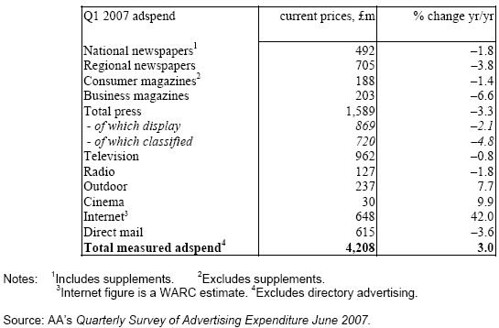Vodacom South Africa (50% owned by Vodafone, 50% owned by state PTT, Telkom) presented its results for the year to Mar 2007 the other day. The results showed spectacular growth for the #1 mobile operator in #1 African market by GDP: Revenues up 21% y-o-y to ZAR41,146m (£2,9bn), EBITDA up 20% to ZAR14,227m (£998m), Net Profit up 28% to ZAR6,560m (£460m), Dividends up to ZAR5.4bn (£380m), Free Cash Flow up 14% to ZAR3.7bn (£260m). Basically Vodacom is a star performer with everything moving in the right direction at a good speed.
The vast chunk of revenues and profits came from the South African market but with mobile penetration standing at 84% the mobile business must be getting close to penetration and so the way forward to keep growth going involves moving into adjacent markets.
Obviously, Vodacom plan on expanding its data services and it claims that its HSDPA (139k customers) services are the most heavily used in terms of volume in the world which implies to me that the customers are using wireless as the primary mechanism for accessing the internet. Vodacom plans to expand way beyond WCDMA and they have investments in WiMax and WiFi companies. In the conference call, the jovial CEO, Alan Knott-Craig mentioned that probably the next step was buying an ISP as this was the logical way in rapidly acquiring the skills and services needed to play in the data game. This puts Vodacom on a collision course with its 50% operator, Telkom.
Vodacom also plan on leveraging its entry into MobileTV (33k customers) by reselling the #1 satellite TV service. Vodacom say this is a natural progression for the company, but it would be a stretch for European Cellular Companies. Obviously, fixed companies in Europe are in various states of entry into the broadcast TV market and again the 50% shareholder is planning on launching its own broadcast TV in competition with #1 South African payTV company, Multichoice. Multichoice is Vodacoms partner and again this puts Vodacom on a collision course with its 50% shareholder.
The sale of payTV highlights Vodacoms two great competitive strengths: the #2 brand in South Africa behind Coca Cola; and the best distribution channel is the whole of South Africa. The quality of Vodacom’s distribution channel makes it a natural partner for anyone in the consumer space. In Europe, analysts typically undervalue distribution networks and I continually hear analysts questioning the logic and expense of building out MNO owned shops and online properties. Carphone Warehouse and Tesco Mobile continually show the value of distribution networks and my only surprise is that it is taken the MNOs in the UK so long to place serious investments in their own stores.
Even more scarily for Telkom is that Vodacom have now acquired an international gateway licence for overseas calls and a fixed licence. Vodacom plan on starting building metropolitan fibre rings this year not only solving Vodacoms own requirement for backhaul, but allowing the resale of the capacity for the corporate market. This should scare Telkom a lot: Vodacom have the Free Cash Flow to invest huge sums in infrastructure, it also has the internal traffic to justify the investment on a standalone basis; and it can cherry pick the high value customers and telco services to target.
There was a lovely moment in the results presentation who the CEO said on presenting a typically busy slide showing all the adjacent services that were possible: “I don’t understand the slide, but I basically think it means that there is a whole bunch on things that we can do. Next”
Vodacom didn’t mention in the presentation its own credit card business or a movement into cellular supported micro-payments. But it obvious that financial services is another area that Vodacom is planning on moving into.
My conclusion is two fold: Vodacom see no business as off limits and despite saturation approaching there is plenty of opportunity for further growth; Telkom will not stay a shareholder for long; and the relationship will probably end up in tears with Vodafone picking up the baton, probably with some element of a local float thereby appeasing the politicals.
In terms of non-South African markets Vodacom seems to be doing really well in Tanzania, DRC and Lesotho. Mozambique is still a problem area in terms of losses although growth looks good in the current year. Of course, no mention was made of the recent sale of part of Mozambique business to local businessmen who are allegedly extremely close to the President. Despite, South Afica still being the engine overseas properties are now accounting for around 10% of revenues and profits.
What I like about the Vodacom approach is that they are being extremely patient in their approach to acquisitions in other African markets. I do believe that businesses will start to become available at reasonable rates once the Middle Eastern investors, who have recently spent a fortune, become disappointed at the lack of returns.
In summary, I think Vodacom is going to be a great investment for Vodafone is the coming years.





